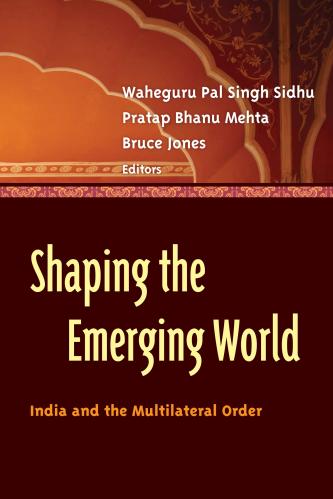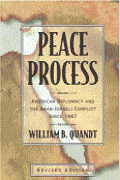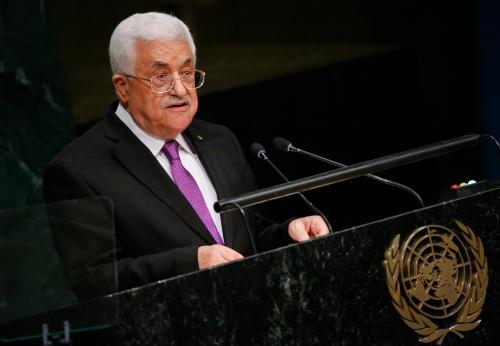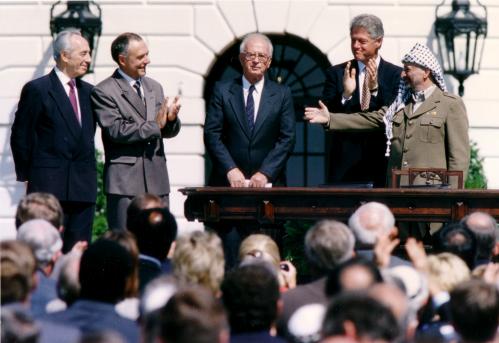Calls to move beyond the status quo in the Israeli-Palestinian context are understandable, writes Shalom Lipner. But any status quo needs to be handled with care, replaced only with an improved situation and not discarded simply for its own sake. This piece originally appeared on Foreign Policy.
“The status quo is unsustainable.” Anyone involved in the ritual of Middle East peace negotiations has heard this phrase countless times. Unless immediate action is taken to change prevailing realities, so goes the paradigm, some irreparable explosion is imminent.
The status quo is the bastard stepchild of diplomacy. Nobody joins the foreign service just to tread water. Diplomats aspire to make the world a better place; they dream of turning swords into ploughshares. Playing referee between intractable enemies and keeping things simmering at a low boil is an inglorious business indeed.
Statesmanship cannot thrive on an exclusive diet of activism, however. It requires no small degree of humility as well. Calls to move beyond the status quo are understandable. An equilibrium that leaves all parties dissatisfied, searching constantly for ways to maximize their own advantage, is inherently unstable. But any status quo needs to be handled with care, replaced only with an improved situation and not discarded simply for its own sake.
Creating unrealistic expectations of a breakthrough when conditions are not conducive to progress is far from a cost-free exercise.
Sometimes, the status quo is the best available alternative. U.S. President Donald Trump says that he wants to broker the “ultimate deal” between Israelis and Palestinians. Efforts by previous administrations have revealed a similar calculus. Despite their intuitive knowledge that the United States “cannot want [a solution] more than the parties themselves,” American mediators have generally resorted to prodding Israelis and Palestinians toward an agreement. This bias toward engagement has exacted a price. Creating unrealistic expectations of a breakthrough when conditions are not conducive to progress is far from a cost-free exercise. Disappointment breeds intransigence and despair, making it even harder to bring the sides back to the table in the future.
Trump has charged senior White House staff with the mission of brokering a settlement. Vice President Mike Pence is now shuttling between some of the Middle Eastern stakeholders. And Jason Greenblatt, Trump’s special representative for international negotiations, is back in the region conferring with Quartet envoys. But under present circumstances—with both sides already on edge about the contours of a supposedly imminent American peace plan—Trump’s goal is overly ambitious and even dangerous.
Addressing the PLO Central Council in Ramallah, on Jan. 14, Palestinian President Mahmoud Abbas lashed out at Israel, referring to the Jewish state as “a colonial project that has nothing to do with Jews.” His delusional words were conceivably motivated by recent American decisions to recognize Jerusalem as Israel’s capital and to freeze U.S. funding for the United Nations agency that aids Palestinian refugees. (He had some choice epithets for Trump too.) Either way, Israel’s prime minister, Benjamin Netanyahu, made it clear that “there will not be peace” while Abbas clings to his rejection of Israel’s Jewish character.
Now that Abbas has pronounced the Oslo Accords dead, the Israeli-Palestinian theater is likely headed toward a meltdown.
Governments in Ramallah and Jerusalem are blaming each other for the impasse and climbing into the trees, where they will wait petulantly for some incentive to justify their return to dialogue. In the interim, they’ll play a high-stakes game of chicken using the United States as a foil: Israel will appeal to the administration for greater latitude to create facts on the ground, while the Palestinians will cry betrayal and circle their wagons. In such an environment, the order of the day is containment—making sure that violence does not erupt and preserving the hope of constructive interaction once the atmosphere clears.
Even that limited objective will require heavy lifting. Israelis and Palestinians are nursing a litany of grievances, both historical and contemporary. And their leaders are focused elsewhere. The 82-year-old Abbas, just beginning his 14th year of a four-year term as president, seems more intent on reconciliation with Hamas-ruled Gaza as his legacy project. Righteously indignant about being double-crossed by America and his fellow Arabs, he has little cachet to talk with Israel anyway. Meanwhile, Netanyahu has just returned from a triumphant visit to India, where he had a 130-member economic delegation in tow. At home, his attention will once again be consumed by more mundane pursuits, including his legal troubles. Wall-to-wall condemnation of Abbas’s tirade among Israeli politicians guarantees that Netanyahu can ignore Palestinian wishes with virtually no political consequences.
On the upside, Israel has just consented to the introduction of high-speed mobile service in the West Bank. While perhaps not a great step forward for mankind, modest achievements like this do contribute to quality of life. The United States should encourage these steps. Over time, they infuse a sense of normality and restore confidence that real progress will—in the right time—be possible. Maybe not with current management, but with the help of visionaries who can see beyond the zero-sum mentality of the present moment.
Last week in Cairo, Abbas warned that Jerusalem is “the gate of peace and war.” And after telling the Knesset that Trump has “done more to bring our two great countries closer together than any president in the past 70 years,” Pence risks unleashing the more adventurous impulses of some Israelis. Everybody needs a timeout.
Cooler heads must prevail. Friends and neighbors should counsel Israelis and Palestinians to tone it down and not jeopardize the cooperation, particularly on security, that already exists.
The status quo gets a bum rap. But as we stand on the cusp of a possible deterioration between Israelis and Palestinians, we should all think twice before tossing it out. If things do spin out of control, the much-maligned status quo will look pretty good in our rearview mirror.
The Brookings Institution is committed to quality, independence, and impact.
We are supported by a diverse array of funders. In line with our values and policies, each Brookings publication represents the sole views of its author(s).










Commentary
Forget the ultimate deal. The Mideast needs the status quo.
January 24, 2018